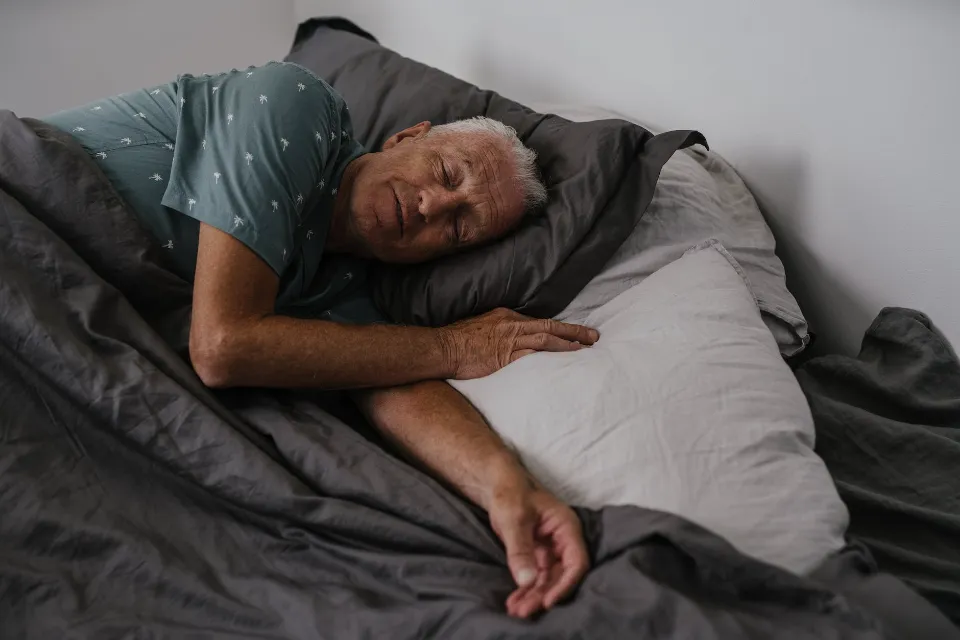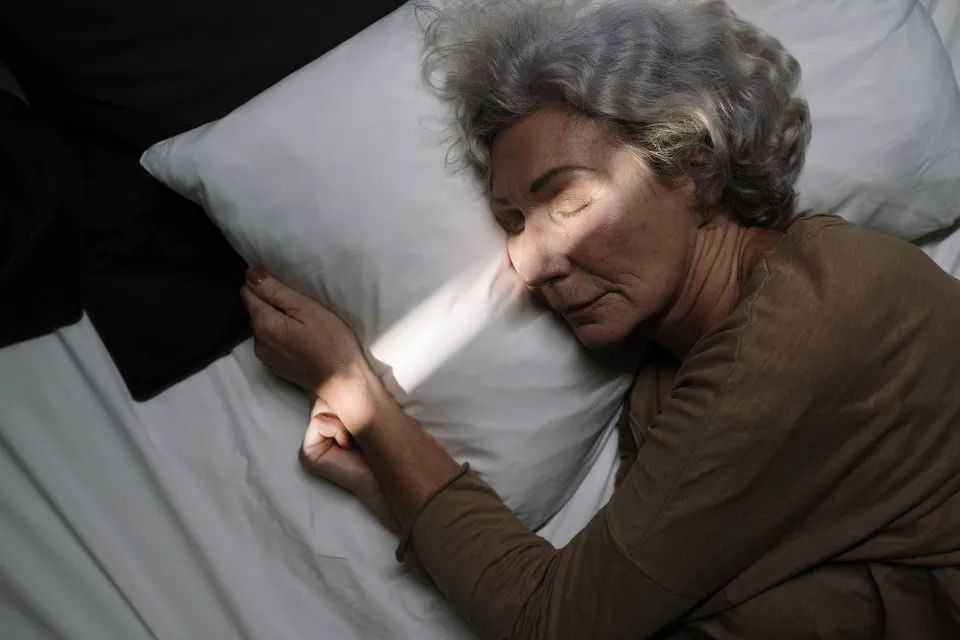As the majority of us have learned, having trouble falling or staying asleep can be a nightmare. Poor sleep can have a significant negative impact on the quality of life of those with dementia as well as those who provide care for them.
In many cases, Alzheimer’s disease and sleep issues are closely related. Find out what contributes to sleep issues in those who have dementia or other forms of Alzheimer’s disease and what can be done to assist them.
Common Sleep Problems Related to Dementia
Even though many older adults have trouble sleeping, those who have dementia frequently struggle more. Sleep disturbance may affect up to 25% of people with mild to moderate dementia and 50% of people with severe dementia. Sleep disturbances tend to get worse as dementia progresses in severity.
The following is a list of possible problems that could arise. It is also typical to wake up frequently during the night and early in the morning.
People with dementia might also experience a phenomenon in the evening or during the night called sundowning. They might feel confused, agitated, anxious and aggressive. Night wandering in this state of mind can be unsafe.

Alzheimer’s patients also have a higher prevalence of obstructive sleep apnea. Breathing frequently stops and starts while you’re sleeping due to this potentially serious sleep disorder.
Factors that might contribute to sleep disturbances and sundowning include:
- Mental and physical exhaustion at the end of the day
- Changes in the body clock
- A need for less sleep, which is common among older adults
- Disorientation
- Reduced lighting and increased shadows, which can cause people with dementia to become confused and afraid
Why Do People With Dementia Have Sleep Problems?
- Light: Light disturbance in a sleeping area such as lamps or landing lights being left on, can cause confusion as to whether it is night or day. This might lead to stumbling around at night.
- Changes in the brain: The body’s circadian rhythm, also referred to as our body clock, is disturbed when the 24-hour day is out of balance, which affects the sleep-wake cycle. People with dementia will have a harder time recognizing whether it is day or night as a result of this disruption.
- Medication: Some medications used to treat dementia can stimulate dreams and disturb sleep at night.
- Specific types of dementia: All types of dementia can cause sleep problems. Sleep disturbances are particularly common with Lewy-body dementia and Parkinson’s disease dementia due to the physical changes to the brain and the association with REM sleep behaviour disorder.
How to Calm Dementia Patients at Night?
Get Some Sunlight
Make sure the environment in your loved one’s bedroom encourages sound sleep. The space must be silent, cool, and dark. A white-noise machine might be used to reduce agitation from outside noises and to set the room’s temperature between 60 and 67 degrees Fahrenheit.
To help control the sleep cycle, go outside or into bright lights as soon as you can in the morning. Patients with dementia have shown to benefit from using a bright light therapy lamp in the morning for better rest and sleep.[15] In order to aid your loved one in winding down at night, you should also get in the habit of dimming the lights and reducing blue light exposure.
Treat Pain
Finding the source of chronic pain could help your loved one sleep better. If a condition like sleep apnea is the problem, consult with their doctor for solutions. If restless legs syndrome is disturbing your parent’s sleep, a magnesium supplement may help.[12] Before giving your loved one any new supplements, be sure to consult with their doctor or pharmacist.
Avoid Medication Side Effects
Numerous medications are frequently taken by dementia patients. Some of these drugs, such as stimulants or diuretics, can interfere with sleep. Actually, it is well known that stimulants like caffeine, alcohol, sugar, and nicotine can cause sleep disturbances.
To help with sleep improvement, it’s occasionally also possible to change the drugs being taken or the time of day at which they’re taken. Before making any modifications to the medication schedule of a loved one, be sure to consult a doctor.
Establish a Sleep Schedule and Routine
Limit the number of daytime naps your loved one takes and work to get them to go to bed at the same time every night. Developing a relaxing bedtime routine may also be beneficial. In order to encourage sleep before bedtime, you might, for instance, dim the lights, put on relaxing music, brew some chamomile tea, and use aromatherapy.

Encourage Activity During the Day
Encourage your loved one to maintain their level of physical, social, and mental activity all day long. For instance, you could go for a walk in the morning, invite a friend over for lunch, and spend the afternoons engaging in mental exercises.
Try a Weighted Blanket
Recent research has shown promising results with weighted blankets for seniors and seniors with dementia alike. Seniors reported falling asleep faster and remaining asleep, while their caregivers noted they had more energy and less anxiety during the day. A weighted blanket should equal about 10% of a senior’s weight to provide a calming effect.
Conclusion
Changes in lifestyle may no longer be helpful as dementia worsens sleep issues and other challenging dementia symptoms. Keep in mind that you might not have the patience or energy to care for the dementia patient if you are not getting enough sleep. You might be causing the person stress, which makes them agitated. If at all possible, alternate watching with a friend or member of your family. To learn more about the assistance that is offered in your area, speak to your physician, social worker, or a representative of the Alzheimer’s Association in your neighborhood.



